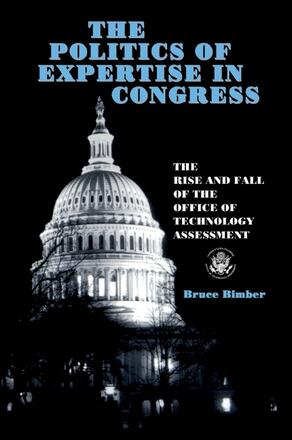
The Politics of Expertise in Congress
The Rise and Fall of the Office of Technology Assessment
Alternative formats available from:
Examines the relationship between technical experts and elected officials, challenging the prevailing view about how experts become politicized by the policy process.
Description
CHOICE 1997 Outstanding Academic Books
Nowhere in the U.S. government is the marriage between expertise and politics more normatively troublesome and empirically obscure than in Congress. The legislature is asked to be both expert and representative, to act on the best available information and judgment about policy problems while being responsive to, and reflective of, constituents' demands. This book examines the relationship betweentechnical experts and elected officials, challenging the prevailing view about how experts become politicized by the policy process.
Bimber presents a theory about the connections between institutional structure and the strategies of experts who participate in politics. He tests this theory by tracing the interaction between Congress and the Office of Technology Assessment (OTA), a recently abolished legislative branch agency created in 1972 to estimate the consequences of new technologies and free Congress from complete dependence on the executive branch for information and policy analysis. In addition, he provides comparative portraits of Congress's remaining support agencies--the Congressional Budget Office, the Congressional Research Office, and the General Accounting Office--and argues that the legislative context for the politics of expertise reveals patterns that have been overlooked in studies of expert knowledge and executive-branch policymaking.
Bruce Bimber is Assistant Professor of Political Science at the University of California, Santa Barbara.
Reviews
"This is a very nice piece of work on a government agency that deserved to be better known and appreciated, because it was one of the great success stories of modern American governmental innovation. The book will appeal to political scientists who seek an understanding of how Congress works and to all interested in how governments and politicians make use of scientific advice." -- Sanford Lakoff, University of California at San Diego
"This is the most insightful and persuasive account of the way experts interact with politicians. Bruce Bimber's absorbing tale of the success--and demise--of the Office of Technology Assessment will fascinate everyone interested in the labyrinth of legislative policymaking. He throws light on most of the nooks and crannies of lawmaking to show how information drives the legislative process. In the process, he is able to show that 'neutral competence' is a necessary, though not sufficient, part of policymaking."